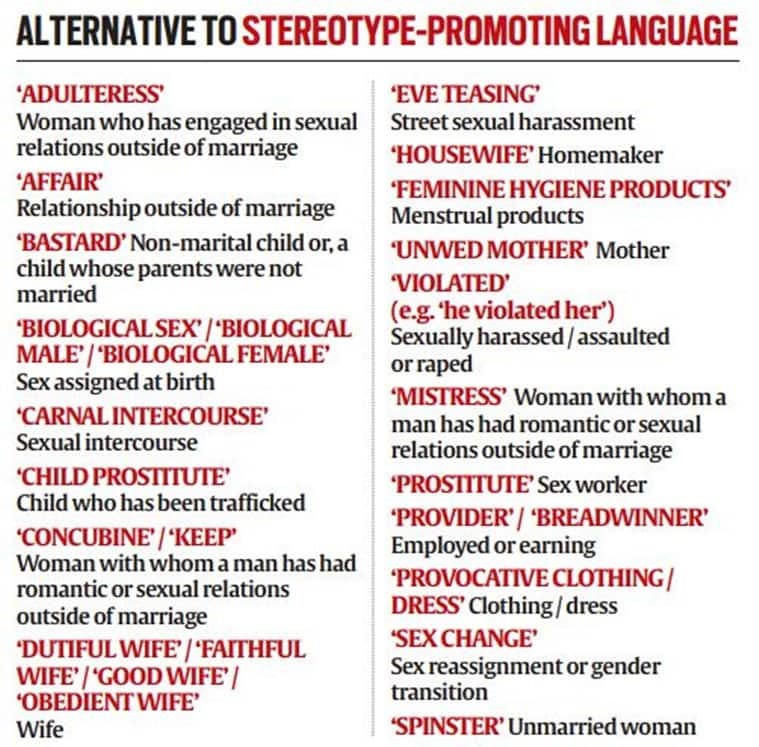900 319 0030
enquiry@shankarias.in
The Supreme Court (SC) recently released a handbook meant to be used by the judges as a guide to gender-just language.

|
Similar Efforts in Other Countries |
|
References